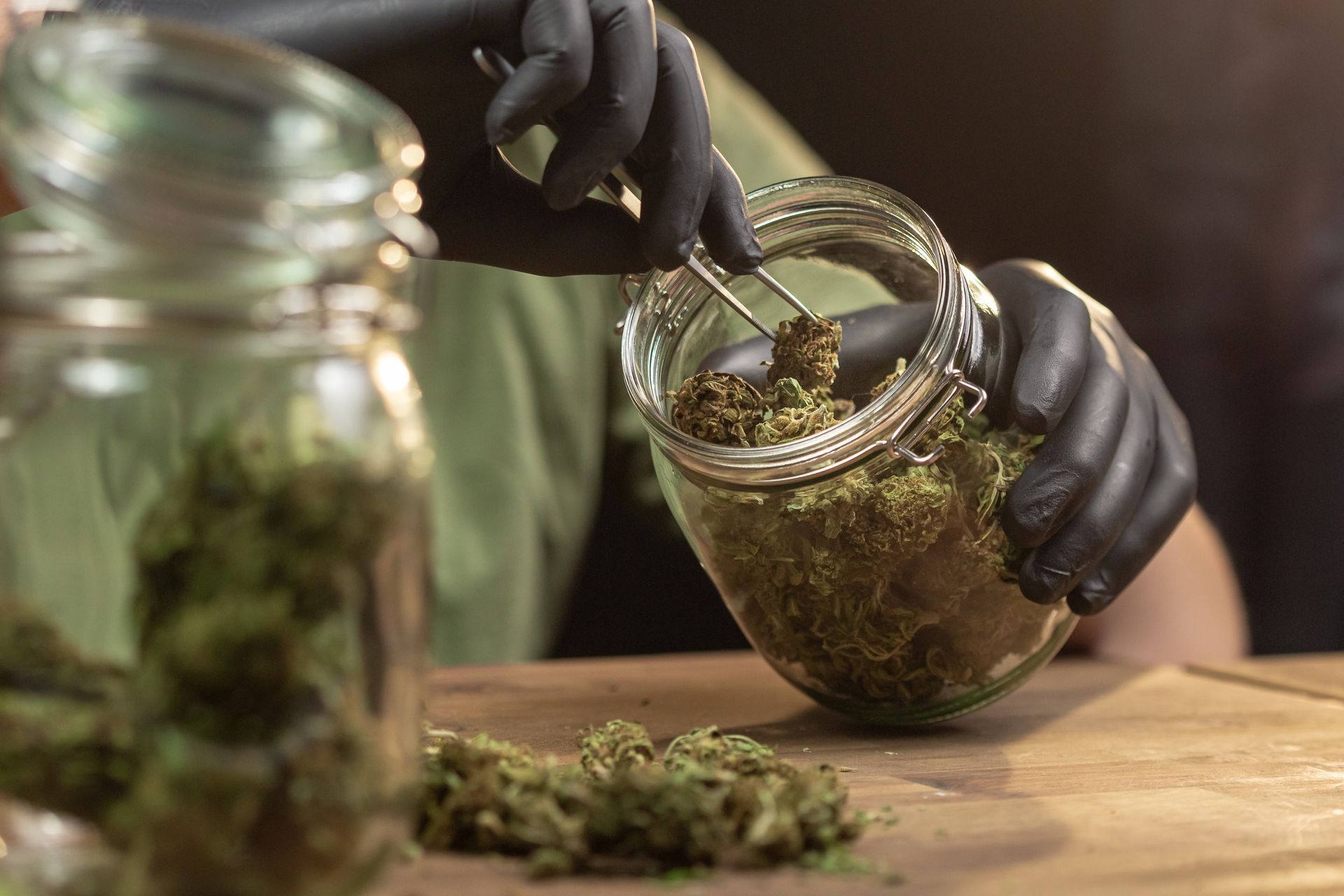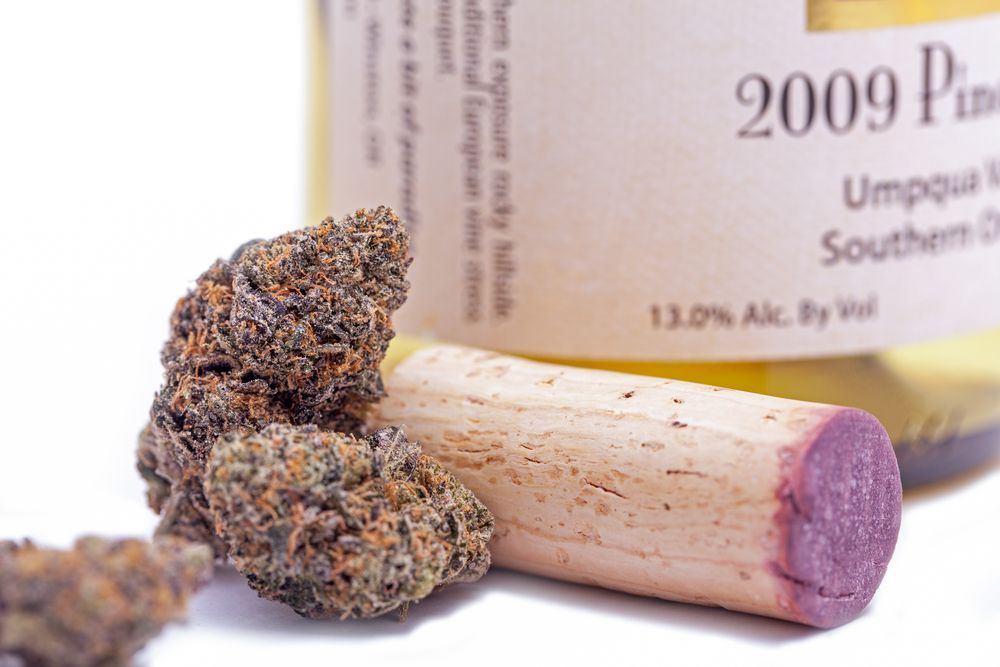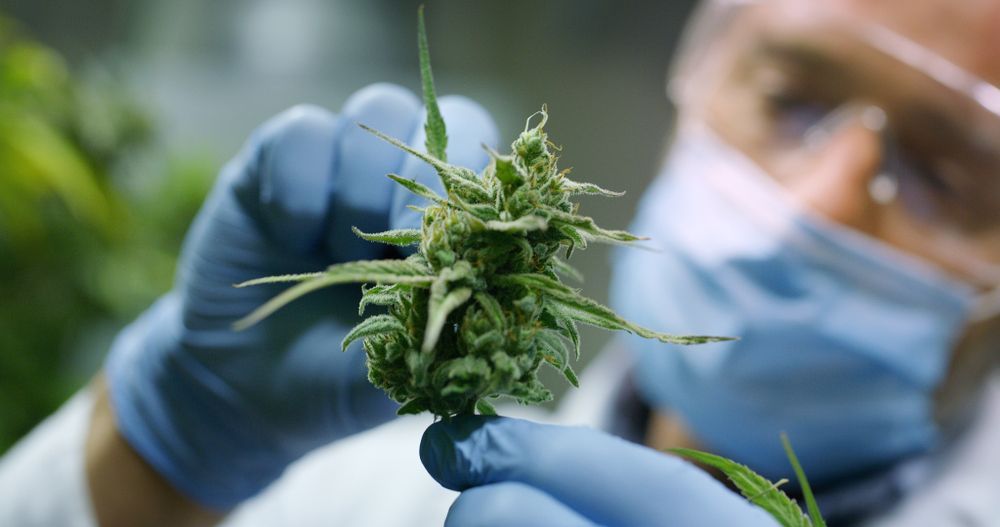Cannabis Health and Science
Cannabis is extremely versatile and has been used as medicine for over eight thousand years! Hua Tuo was documented as the first doctor to make use of it in the second century CE. He created a potent mixture of ground cannabis indica and wine to prepare people for surgery . While pain relief remained its primary use for most of history, cannabis was also a key ingredient in over 2,000 different medicines until 1937, when prohibition pretty much killed the medical marijuana industry.
There are many other potential benefits, and we have compiled some information below, including links to primary sources so you can develop an informed opinion. None of us at Pot Mates are doctors and doctors are the only people qualified to dispense medical advice. We’re only qualified to advise you on stuff like different ways to consume cannabis and what to do when you’re too high , not your health.
Cannabis for Pain
People have used cannabis to reduce pain throughout history, and this is still the number one reason it is prescribed. You’ve probably noticed these effects if you’ve ever felt particularly relaxed and comfortable after smoking a joint or nibbling a cookie. Cannabis acts on the body’s natural type-1 and type-2 cannabinoid receptors (also known as CB1 and CB2) in areas of the central nervous system that control pain perception.
Different cannabinoids can also reduce inflammation and alleviate spasticity, making it popular with people who experience neuropathic pain or suffer from multiple sclerosis. Patients who rely on a high concentration of THC for relief prefer strains that have a high percentage of CBD as well. As you may recall from our article How to Choose a Strain , CBD helps counteract some intoxicating effects of THC, which is an important consideration for many sufferers of chronic pain who need to stay functional throughout the day.
Many doctors and patients also look to cannabis as a substitute for opioid drugs, which are correlated to high levels of dependency and heavy overdose potential. Recent studies have demonstrated that cannabis can be just as effective at reducing pain as opiates, with fewer debilitating side effects.
Cannabis for Nausea
Cannabis can also increase appetite and suppress nausea. No duh, right? Everybody gets the munchies,—we even published an article on the best foods to eat when you’re stoned ,—but to some patients, this can be a real lifesaver. Cannabinoids can be more effective than conventional medications like metoclopramide, prochlorperazine, and promethazine in mitigating the symptoms of chemotherapy-induced nausea and vomiting. This is because our bodies’ natural endocannabinoid systems play a role in managing our upset stomachs. CBD and THC both have measurable anti-emetic effects (word of the day! “Emetic” means vomit-inducing), which has made cannabis a game-changing medication for cancer patients who have trouble keeping down their food.
Some recent research has suggested that cannabis may even be effective at treating leukemia cells in vitro. It’s still a stretch to say that cannabis could cure cancer, but rest assured that there are many scientists exploring that very possibility as we speak.
Cannabis for Mental Health
There is a lot of anecdotal evidence that cannabis helps relieve stress and reduce the symptoms of anxiety, depression, sleep disorders, and even post-traumatic stress disorders. The reason we like it is because it chills us out. Cannabis has been demonstrated to offer some relief from anxiety and depression in clinical studies as well. While low doses of THC can have anxiolytic and mood-elevating effects, high doses can do the opposite, sometimes triggering symptoms that can resemble a panic attack. CBD contributes some anxiolytic (more vocab, this one means anti-anxiety) effects, which is why people with anxiety prefer balanced strains to those without CBD. If you have certain pre-existing conditions like paranoia or schizophrenia, you may want to avoid using cannabis. Some research has suggested cannabis use may exacerbate these conditions (although other research suggests it may help with them. Medical science is complicated!)
Another way that cannabis could be medicine for the brain is that it can reduce the accumulation of amyloid-β, which is one of the main causes of Alzheimer’s disease progression. Recent research suggests certain cannabinoids may even be able to reverse some of the disease’s debilitating effects.
The Entourage Effect
Many trials focus on the effects of just one or two specific cannabinoids that they have chemically isolated. This is a necessary step for the process of developing sound medicine, but Israeli researcher Raphael Mechoulam has found some evidence to suggest that cannabinoids work better when they work together —like in full-plant extracts or smoking flower directly. We’ve already seen this in the way that CBD can attenuate some psychedelic side effects of THC. More research is is trying to pin down exactly how these different compounds interact with each other to bring us the therapeutic benefits of cannabis. This hypothesis is called “the entourage effect,” and it may explain why synthetic THC and CBD products are not as effective at managing symptoms as an extract prepared from the whole plant.
Ongoing Research
This is a developing field of study, so the available information about the medical effects of cannabis is likely to change over time. We already know so much more about cannabis than we did before 2008, when medical cannabis first became re-legalized, and new studies are being published every day. One place to keep up with those changes is right here at Pot Mates. We’re excited to follow the development of this wonderful plant as medicine and will do our best to share the news with you as soon as it happens. Another place to keep track of ongoing research into medical cannabis is Wikipedia’s medical cannabis research page, which offers a breakdown of the latest studies on the effect cannabis has on a number of different medical conditions. We encourage you to stay informed and always consult your doctor before starting a new treatment regimen.
In the interest of giving you all of the information to make an informed decision about your use, we have also compiled the current research on reasons you might not want to use cannabis. Knowledge is power!





